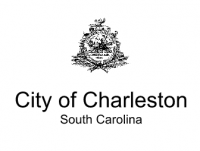Little-known automatic tax cut reduced city property tax bills by $28 million in 2022
November 3, 2022Last year, Charleston residents were told that city property taxes were set to rise in 2022.
So why did their actual property tax bills from the city go down?
As city C.F.O. Amy Wharton explained at a special City Council budget meeting last night, the answer to that question lies in a little-known automatic tax cut named, with typical government impenetrability, “the LOST credit.”
“When the economy grows and Local Option Sales Tax revenues rise, we automatically cut property tax bills by an equal amount,” Wharton said. “That’s great news for city taxpayers, but it’s also incredibly confusing. We need to find a better way to communicate that reality to our citizens.”
For instance: In December of 2021, it was widely reported that property taxes on a $500,000 owner-occupied home in the city of Charleston would be rising by $60 in 2022. Instead, they went down by $10.
“That’s the magic of the LOST credit,” Wharton said. “And it has that same tax-cutting effect almost every year. That’s why city property taxes are lower today than they were in all the way back in 2009, even though City Council has repeatedly voted to ‘raise’ property taxes since then. As staff, we just have to find a way to be more transparent about these automatic tax cuts when they happen.”
Next month, this circumstance is likely to play out again, as City Council considers a property tax increase to fund much-needed salary increases for police officers, firefighters and non-sworn city employees in 2023 – a tax increase that will once again disappear over time due to this automatic tax cut.


















